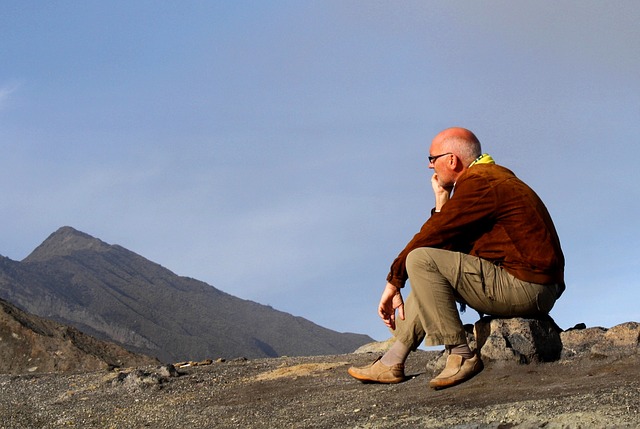Leo Babauta, creator of zenhabits.net, suggests that underpinning our unhealthy habits is a “craving for wholeness”. In his view – whether we are obsessed with the news, shopping, food, sex, social media or partying – we are looking for something to redress our loneliness, sense of disconnection or feeling of incompleteness.
Mindfulness practice to overcome unhealthy habits
Leo advocates a mindfulness practice that incorporates four main steps:
- Pause and be still. Don’t seek distractions or ways to entertain yourself.
- Feel the discomfort of loneliness, isolation or disconnection that is driving you. Realise that unhappy habits can entrench your sense of loneliness. Get in touch with your uncertainty and explore what makes your life meaningful.
- Notice the goodness in your heart. You care about others and about yourself. Recall moments when you have shown loving kindness or consideration towards others.
- Connect with a sense of wholeness both within and without (outside of yourself). Marvel at the integration of your mind, body and spirit and the interconnectedness of nature.
Leo, author of The Habit Guide Ebook, describes the mindfulness practice in more detail in an article on his Zen Habits blog, The Craving for Wholeness That Drives Our Activities. He suggests that you can rest in the awareness of the sense of wholeness in everything, including nature. Let nature be your ally in your search for wholeness.
The Interconnectedness of Nature
Louie Schwartzberg, time-lapse photographer and film director, reminds us that nature is a source of mindfulness because everything in nature is interconnected and we are connected to it. He explains that every living thing is dependent on another living thing and illustrates this through his film, The Wings of Life, which was presented at a TED Talk, The Hidden Beauty of Pollination.
Louie Schwartzberg is currently working on a crowd-funded film, Fantastic Fungi, in collaboration with authors, artists, doctors (oncologists, integrative medicine experts) and scientists (mycologist, ecologists, philosoforager).
In a short teaser film for Fantastic Fungi, Louie Schwartzberg explains the interconnectedness of nature manifested through mushrooms:
Plants need soil. Where does soil come from? It comes from the largest organism on the planet that heals you, that can feed you, that can clean up a toxic oil spill, that can even shift your consciousness. It’s mycelium. Mycelium is the root structure under budding mushrooms. It’s like the Internet – a vast underground exchange [intelligent & communication] network that transfers nutrients from one plant to another.
Louie Schwartzberg has spent his whole working life to show us, in living vibrant colour and film, how nature inspires wonder through its wholeness and interconnectedness. Leo Babauta, through his mindfulness practice, encourages us to to reflect on this wholeness and our interconnection with everything.
As we grow in mindfulness, we come to realise that we are not alone or disconnected – that we are connected to a vast wholeness manifested in nature and in the intricacy of the interconnection of our body, mind and spirit. Mindful awareness of this connectedness is a pathway to overcoming unhealthy habits.
By Ron Passfield – Copyright (Creative Commons license, Attribution–Non Commercial–No Derivatives)
Image source: courtesy of astama81 on Pixabay
Disclosure: If you purchase a product through this site, I may earn a commission which will help to pay for the site, the associated Meetup group and the resources to support the blog.



